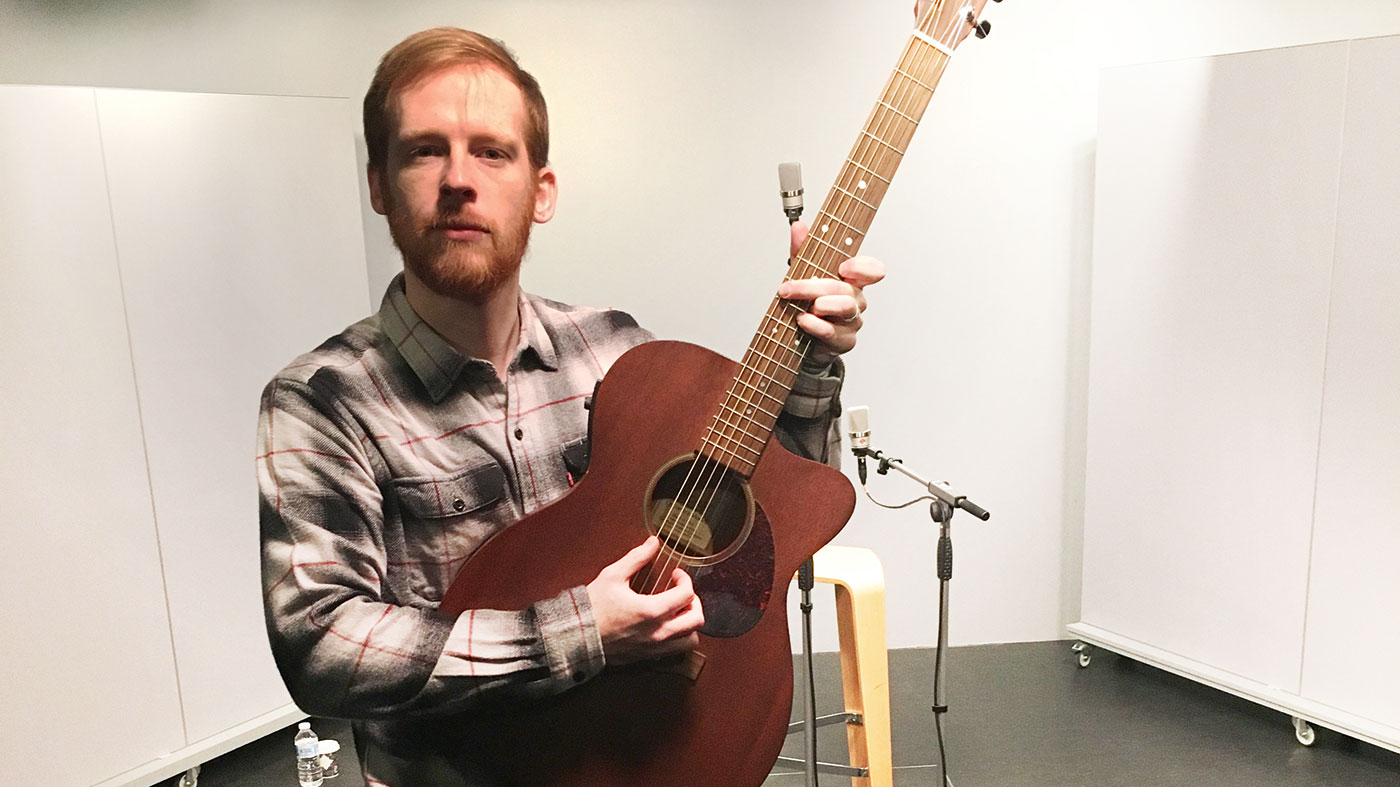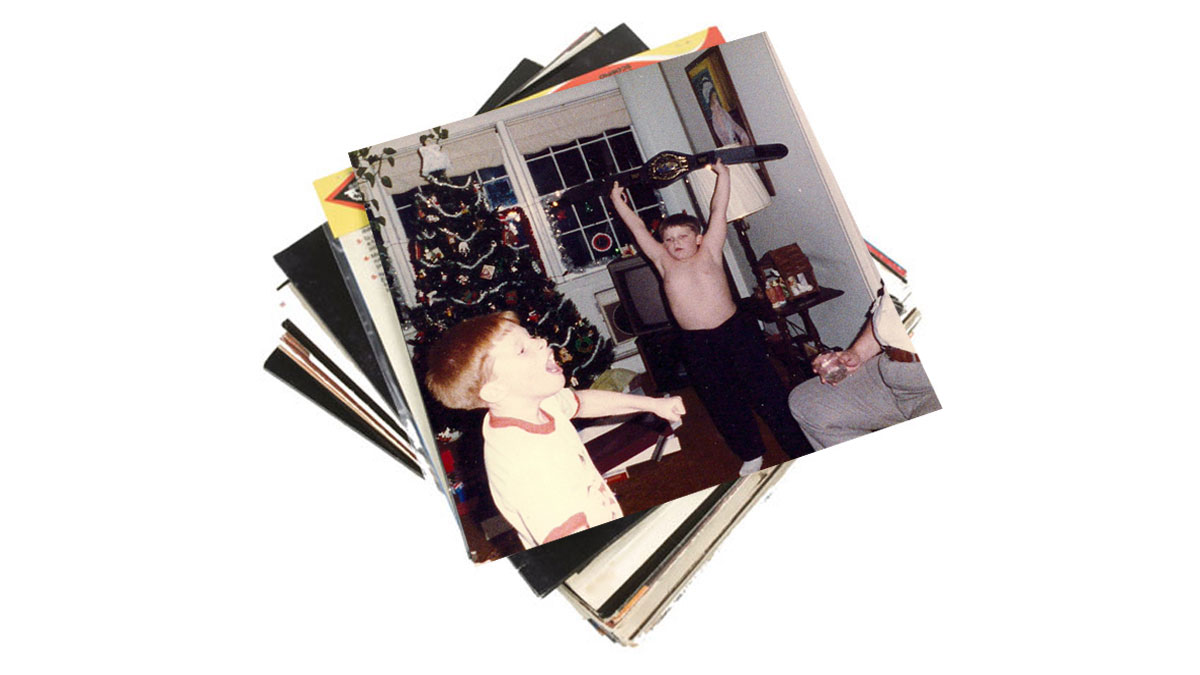Kevin Devine: how Andy Hull, Jesse Lacey and politics influence my songwriting
US songwriter on new album Instigator

Introduction
Brooklyn native Kevin Devine, the longest-serving artist on UK label Big Scary Monsters, talks about his ninth studio album Instigator, writing political songs in the current climate and Elliott Smith.
Shortly before talking to Kevin Devine in Nottingham on his recent UK tour, he attended a protest gathering in the city's Old Market Square.
I want to help forward a conversation to make people comfortable to think and talk about what's going on
“We're living in pretty radical times and I feel that mostly what I write about is the experience of personality – what it's like to be a person – and right now that’s absorbing a lot of crazy, radical chaotic stuff,” he says. “I think it does turn up quite a bit on the record. It's turned up on past records too, but it feels a bit more crystallised and focused on this record.”
With Instigator taking a political approach, Devine has used his album to highlight issues but doesn't consider himself as an iconoclast.
“I see myself as someone with a platform that can help forward a conversation to make people comfortable to think and talk about what's going on,” he says. “I guess I would align myself with the left, but I would also say I don't agree with this call out culture where people aren't allowed to make mistakes in public without being crucified.
“It's a learning curve, so we need to be patient with people because we're living in a time of quick and radical changes, so if anything, I'm trying to be part of that conversation that feels authentic.”
Away from the honest and political lyricism found on Instigator, the record sees Devine balance out his sound between fuzzy indie-powerpop and “folk inflected moments”, and like most singer-songwriters, the songs always begin on an acoustic guitar.
“They are always born that way,” Devine says. “Some are born while I'm playing an acoustic guitar, but will end up on an electric guitar and will change when they're covered in effects pedals, but the basic structure, the chords or the progressions or the melodies always start with the acoustic. Sometimes you start with an acoustic song, you build it into a rock song and you figure how to strip it back down to best communicate it as a folk song.”

To Hull and back
We ask Devine how he feels he’s improved as a songwriter from his first album to this one.
“I feel like I'm a better singer than I used to be. I'm a better guitar player than I used to be. I feel like a better arranger than I used to be. I hear harmonies better and can execute them better, but none of that is songwriting.
“There are people who might think my best songwriting was when I was 24. I don't. I think I've gotten more concise and can communicate more directly, but some people don't want concision and direction, they want wildness, so I understand that too. My aim has always been to trim the fat every time and always get a little bit better at something.”
When I write something simple there's some voice in my head saying 'it can't be good' and usually that's not true
When questioned what effect Andy Hull, of Manchester Orchestra and Bad Books, and Jesse Lacey (producer of 2013’s Bubblegum and frontman of Brand New) has had on Devine, he says Hull has made him a better singer adding “he hears harmonies almost reflectively, so singing with him has made me confident that way.”
Meanwhile he shares a connection with Lacey when wanting to make his songs uglier and complex.
“For me, when I write something simple there's some voice in my head saying 'it can't be good' and usually that's not true, it's just a different type of good. Instigator was an attempt to make it straight. I mean straight is always going to sound a little crooked when it comes out of me, but I tried to make it sound as straight as I could.”
Here in the United Kingdom, Devine has developed a longstanding relationship with Oxford-based independent label, Big Scary Monsters Records. Having met label owner Kevin Douch at the SXSW festival in 2009, both Kevins have maintained a partnership. Devine is the label's longest serving artist and sees him regularly while visiting the UK and Europe.
“He seemed to understand me, my career and where I wanted to go. We've kind of re-examined it every time we've put out a record, and both of us mutually have decided to keep doing it,” says Devine when asked about the relationship with BSM and Douch.
“I'm really grateful because I think he's helped me grow a career here in a way that's not flashy but is real. We can play these rooms and they're pretty much full and people give a shit. He's made my career here way more firm and collected. And incremental every time. We've never gone through the roof but we've never dove through the floor either. He's instrumental in that. New people come in, old people go out but if you can still have an audience that's a really hard thing to do these days.”

Mother's pride
Devine's introduction to the guitar came from his cousin Bobby and a musical diet of the Beatles, Bob Dylan, Joni Mitchell, Joan Baez, Buffy Sainte-Marie, Neil Young and Leonard Cohen supplied by his mother.
“She's the person who really gave me music,” Devine says. Later on he would listen to Nirvana and, to an extent, Guns N’Roses, as he learned guitar on a nylon string guitar.
“Nirvana had songs I could actually learn, or sort of learn enough to be in my basement and playing them myself,” explains Devine. “With Guns N’Roses songs I was trying but, at that time, it felt pretty challenging.”
I think Elliot Smith was such a unique guitar player; so skilled and particular. He was sneaky good
Nevertheless, his biggest influence continues to be Elliott Smith. “He became a real ‘chasing the dragon’ thing for me because I think he was such a unique guitar player; so skilled and particular. He was sneaky good,” says Devine.
“He's the one that expanded my vocabulary, in terms of seventh chords and walking progressions and passing notes. He also got me back into how to fingerpick better. He’s an influence in every aspect of my songwriting.”
As a guitarist, Devine is content at the level he is at. “I feel equally confident playing an acoustic as an electric. I feel like they're different and diverse enough but still tell the same story. I like where I could get better but I feel comfortable in my skin as a guitar player.
“I tend to lean towards the Neil Young/Kurt Cobain/Joey Santiago way of playing. I don't mind if it makes a mess or it's a little distant. I'm in awe of really clean, great guitar players too but it's not what gets me going. I tend to like guitar solos that are melodies.”
When it comes to guitars, Devine has had a long admiration for Gibson. “I always play Gibson J-185s, but I broke the headstock on mine on tour. I tried to fix it with glue, it stayed for a little while then came off again. So I need to get a proper, normal steel string acoustic guitar again. When I do, it'll likely be a replacement in that world. I love those Hummingbirds from Gibson too. They play themselves and they look beautiful. I actually borrowed one last time I was here.”
His secondary guitar, as he calls it is a Gibson he keeps in Nashville tuning, but his primary choice is a Yamaha G231-II. He highlights its “tonal balance” but combines the Gibson and the Yamaha on Instigator as he says it gives the effect of a 12-string guitar “if the lower octave was all nylon strings and the higher octave was steel strings on a Gibson.”

